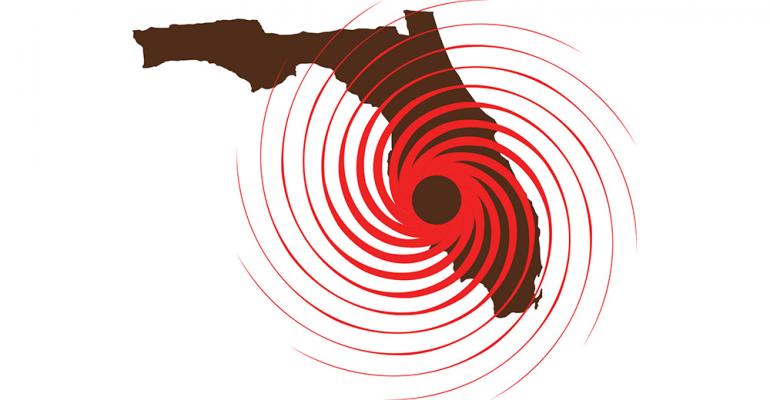 This is part of Supermarket News’ 2017 Disruptors package. See the entire lineup here.
This is part of Supermarket News’ 2017 Disruptors package. See the entire lineup here.
This year’s hyperactive hurricane season disrupted retail operations along the Gulf of Mexico and in the Southeast, but it also demonstrated how adept food retailers have become at responding to natural disasters.
As multiple devastating storms hit the U.S. coast in rapid succession in August and September, supermarket operators in the affected areas faced enormous logistical challenges. They first had to stock and maintain inventory across a widespread area during the forecast period when it was uncertain exactly where the impact of the storms would be, then they had to quickly assess the damages and get stores reopened as soon as the storm passed, sometimes running on generator power.
Retailers have perfected these maneuvers to the degree that Lakeland, Fla.-based Publix Super Markets said it generated $250 million in incremental revenue from the impact of Hurricane Irma, which hit Florida beginning Sept. 10 and caused widespread damage and power outages. Hurricane-related sales contributed 3.1% to the chain’s 4.3% third-quarter comparable-store growth, Publix said.
Publix, which operates the majority of its 1,157 stores in Florida, has perhaps as much experience as any retailer preparing for and recovering from hurricanes. When Hurricane Irma hit, the company said most of its stores that had to close for evacuations or severe weather were reopened within two days following the passage of the storm. All stores were reopened within six days, with the exception of one location in Key West, Fla., which reopened the following week.
“We have faced many hurricanes in our past, but none with the size and impact of Hurricane Irma,” said Todd Jones, president and CEO, Publix. “I could not be more proud of our associates for their passionate service to our customers before and after the hurricane.”
Retailers also do more than supply products to customers before and after storms. They also often help raise funds for victims and sometimes go to great lengths to help their communities recover.
San Antonio-based H-E-B, for example, was at the forefront of relief efforts when Hurricane Harvey hit the Houston area Aug. 25. The retailer dispatched its Disaster Response Units and H-E-B Mobile Kitchen to provide, food, water, prescriptions and other supplies to people impacted by the storm, which caused extensive flooding in the region and inflicted an estimated $180 billion in damage.
In an interview with Texas Monthly, Justen Noakes, director of emergency preparedness for H-E-B, said keeping stores running is his No. 1 priority during such disasters, but the company also feels an obligation to assist the communities where it operates as well.
“When you talk about a disaster such as Hurricane Harvey, we do everything we can to not only recover our stores but also recover our communities, because that’s where we’re from as well,” he told the magazine. “The sooner that we can provide relief and the comfort and the items that people need to return themselves to normalcy, the better off the whole community is.”
Most of the 114 H-E-B stores that were in the path of the storm were reopened within days, according to local reports.
Scott McClelland, president of H-E-B’s Houston Division, said the size of Hurricane Harvey — which dumped as much as 60 inches of rain on parts of Texas — posed enormous challenges for the chain.
H-E-B used helicopters to fly truck drivers to Houston from San Antonio, for example, because many of its local drivers in Houston were either stuck in their homes or had lost their homes in the flooding, McClelland said in an interview on LinkedIn.com.
Workers from other areas of the state pitched in to help get the affected stores restocked, McClelland said, and put in some long, difficult days.
“People will rally to a cause to help out their fellow human beings,” he said. “This time, maybe even more so than ever before.”





